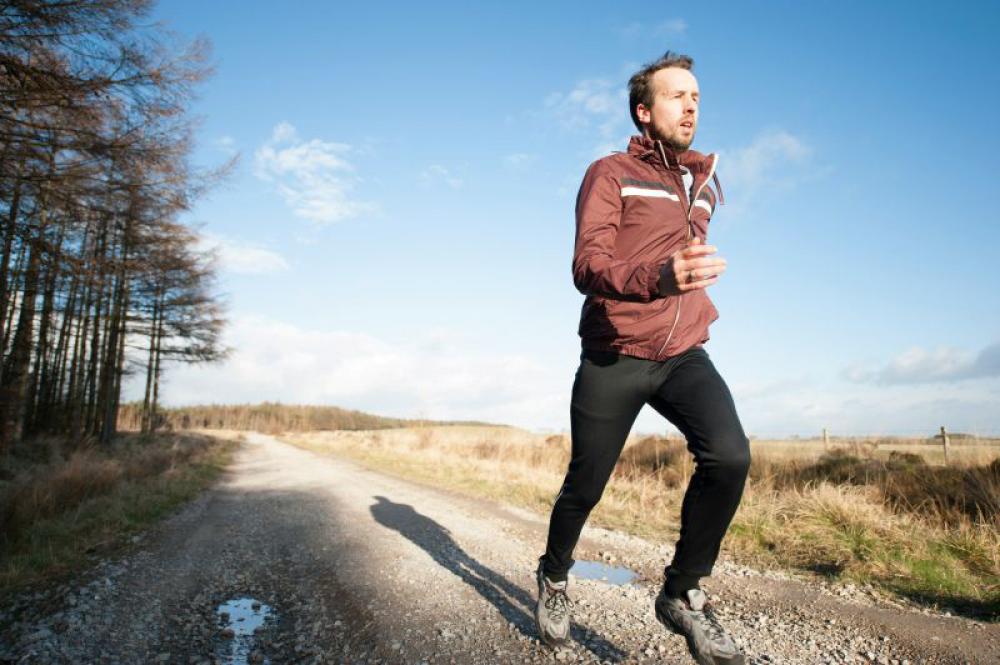Just Earth News | @justearthnews | 10 Dec 2024, 06:26 am Print

New study finds short-term cognitive boost from exercise may last for 24 hours. Photo Courtesy: Unsplash
Researchers have found that short-term cognitive boost from exercise may last for 24 hours.
The new study, published in the International Journal of Behavioral Nutrition and Physical Activity, found that, on average, people aged 50 to 83 who did more moderate to vigorous physical activity than usual on a given day did better in memory tests the day after.
Less time spent sitting and six hours or more of sleep were also linked to better scores in memory tests the next day, read the statement issued by UCL (University College London) researchers .
More deep (slow-wave*) sleep also contributed to memory function, and the research team found this accounted for a small portion of the link between exercise and better next-day memory.
The research team looked at data from 76 men and women who wore activity trackers for eight days and took cognitive tests each day.
Lead author Dr Mikaela Bloomberg (UCL Institute of Epidemiology & Health Care) said: “Our findings suggest that the short-term memory benefits of physical activity may last longer than previously thought, possibly to the next day instead of just the few hours after exercise. Getting more sleep, particularly deep sleep, seems to add to this memory improvement.
“Moderate or vigorous activity means anything that gets your heart rate up – this could be brisk walking, dancing or walking up a few flights of stairs. It doesn’t have to be structured exercise.
“This was a small study and so it needs to be replicated with a larger sample of participants before we can be certain about the results.”
In the short term, exercise increases blood flow to the brain and stimulates the release of neurotransmitters such as norepinephrine and dopamine which help a range of cognitive functions.
These neurochemical changes are understood to last up to a few hours after exercise. However, the researchers noted that other brain states linked to exercise were more long-lasting. For instance, evidence suggests exercise can enhance mood for up to 24 hours.
A previous study, published by a separate research team in 2016, also found more synchronised activity in the hippocampus (a marker of increased hippocampal function, which facilitates memory function) for 48 hours after high-intensity interval training (HIIT) cycling.
Co-author Professor Andrew Steptoe (UCL Institute of Epidemiology & Health Care) said: “Among older adults, maintaining cognitive function is important for good quality of life, wellbeing, and independence. It’s therefore helpful to identify factors that can affect cognitive health on a day-to-day basis.
“This study provides evidence that the immediate cognitive benefits of exercise may last longer than we thought. It also suggests good sleep quality separately contributes to cognitive performance.
“However, we can’t establish from this study whether these short-term boosts to cognitive performance contribute to longer term cognitive health and though there is plenty of evidence to suggest physical activity might slow cognitive decline and reduce dementia risk, it’s still a matter of some debate.”
For the new study, the researchers looked at data from wrist-worn activity trackers to determine how much time participants spent being sedentary, doing light physical activity, and doing moderate or vigorous physical activity. They also quantified sleep duration and time spent in lighter (rapid eye movement, or REM) sleep and deeper, slow-wave sleep.
In looking at the links between different types of activity and next-day cognitive performance, the research team adjusted for a wide variety of factors that might have distorted the results, including the amount of moderate or vigorous physical activity that participants did on the day of the tests.
They also accounted for participants’ average levels of activity and sleep quality across the eight days they were tracked, as participants who are habitually more active and typically have higher-quality sleep perform better in cognitive tests.
The team found that more moderate or vigorous physical activity compared to a person’s average was linked to better working memory and episodic memory (memory of events) the next day. More sleep overall was linked to improved episodic and working memory and psychomotor speed (a measure of how quickly a person detects and responds to the environment). More slow-wave sleep was linked to better episodic memory.
Conversely, more time spent being sedentary than usual was linked to worse working memory the next day.
The study is among the first to evaluate next-day cognitive performance using a “micro-longitudinal” study design where participants were tracked going about their normal lives rather than having to stay in a lab.
Among the study limitations, the researchers noted that the participants were a cognitively healthy group, meaning the results might not be true for people who have neurocognitive disorders.
The study involved researchers from the UCL Institute of Epidemiology & Health Care, UCL Division of Surgery & Interventional Science and the University of Oxford, and received funding from the UK’s Economic and Social Research Council (ESRC).
- New hybrid Mpox strain surfaces in UK and India — WHO sounds global alert
- Deadly weight: Obesity now responsible for 1 in 10 infection deaths worldwide
- Coffee and tea: This everyday drink may help protect your brain from dementia
- Happy Chocolate Day! The sweet secret behind chocolate’s hidden benefits
- Cambridge study finds menopause affects memory, mood, and sleep





-1763561110.jpg)
